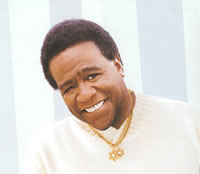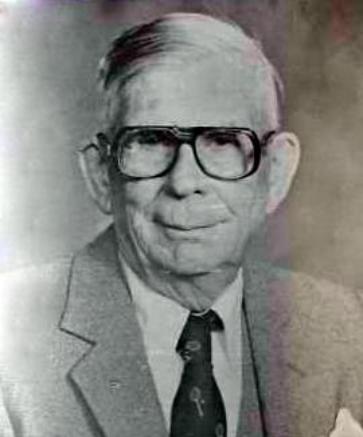The only school to leave and return to the Western Conference/Big Nine/Big Ten Conference is the University of Michigan. Read on to find out why University of Michigan Football Coach Fielding Yost urged Michigan’s Faculty Board in charge of Intercollegiate Athletics to withdraw from the Big Ten in 1907. While the University of Michigan may or may not have withdrawn at this time, the New York Times reported that the University of Michigan was expelled on April 13, 1907 for non-observance or rules, regarding limits on the number of games played each year, the number of years football team members were eligible (3), and possibly limits on the price of football tickets ($.50 at a time Michigan was charging up to $2 and $3).
The University of Michigan pursued its own way for ten years from 1908-1917, picking up new rivals such as Ohio State University, Notre Dame University, and the mighty Michigan Agricultural College (now Michigan State University).
For the full article, see John U. Bacon, “Yost’s walkout”, Michigan Today, June 9, 2010.
Conference Ousts Michigan; Severs Relations With University for Non-Observance of Rules, New York Times, April 14, 1907.
On April 13, 1916, the organization that was to become the Citizens Research Council of Michigan (CRC) began operations in the City of Detroit.
Check out the Citizens Research Council of Michigan Blog.
The Citizens Research Council of Michigan also provides podcasts.
Source : Citizens Research Council of Michigan.
STATE MOVES TO MAN FARMS: Ex-Governor Warner Heads Committee Named to Banish Food Supply Peril. 100,000 WOMEN OFFER TO SERVE AS NEEDED Schools and Manufacturers Will Be Asked to Send Aid to Garner Harvest
Detroit Free Press, April 14, 1917.
If not for the influence of a Greek immigrant family in Lansing, Michigan State University fans might be stuck with a clunker of a nickname: The Staters.
Imagine trying to fire up about a name that rhymes with “Taters.” Woo-hoo.
The issue dates back to 1925, when the college’s name changed from Michigan Agricultural College to Michigan State College. A new nickname was needed to replace the “Aggies” and the public was asked to submit suggestions.
The winning entry was judged by a group on campus in March of 1926. Staters beat Bearcats, Statesmen, Bob Cats, Pioneers and, drumroll please, the Fawns.
The choice of Staters immediately ran into a stacked defense. George Alderton, the Lansing State Journal sports editor from 1923 to 1962, disliked the nickname and refused to use it in the sports pages of the Journal.
Alderton is frequently credited with replacing Michigan Staters with the Spartans. But he got the idea from his friend, Stephen Scofes, according to the Scofes family.
I first heard the story from Steve Scofes, 57, a Lansing-based lobbyist who heard the story from his father, George, now 89, of Okemos. It had been passed down from Steve Scofes’ grandfather, Stephen Scofes, who died in 1972, and his brothers, Peter and Nick.
The Scofes brothers were all born near Sparta, Greece but immigrated to America. They ran a restaurant in Lansing called The Coffee Cup in the 1920s and were friends with Alderton.
In 1931, they opened the Famous Grill, a restaurant that became known for its fried chicken from a franchise called “Chicken in the Rough.” The restaurant became a hub for Spartan athletic banquets and events for a few decades. Two Spartan athletic awards are named for the Scofes family.
George Scofes said his father told him that Alderton came in for breakfast one day to discuss the name for the Michigan State teams.
“He showed him all the names. One of the names people wanted was the Staters. That didn’t go very well,” George Scofes said.
Stephen Scofes had already suggested a better name: The Spartans.
My dad said to him, ‘George (Alderton) I sent you a letter to name them the Spartans. The Spartans were warriors,’” George Scofes said.
Alderton soon launched the idea for the Spartans but didn’t credit Scofes.
Spartan name unveiled
On April 13, 1926, he wrote: “Out of a clear sky a nick name has descended upon the Michigan State college athletic camp. ‘Spartans’ is the sobriquet that will … be attached the wearer of the Green and White in the field of intercollegiate sports competition.”
He then went on to write about the ancient Spartans’ athletic prowess and courage.
A rival newspaper, Lansing Capitol News, also picked up on it and the name stuck.
The family has no doubt about the origin. The Coffee Cup offered a perfect place to discuss the name.
“Who else was in this town in the late ‘20s who were born and raised in Sparta, Greece who had a restaurant?” Steve Scofes asked.
A 2008 history of the Spartans does name the Scofes family, and its influence on Alderton. And MSU honored George Scofes at halftime of an MSU football game in 2013 with a video recreation of how Sparty got his name.
Besides being the son of the man who named the Spartans, George Scofes has had a fascinating life. Though he was born in Indiana and was an American citizen, he grew up in Greece, raised by his grandparents in a village near Sparta after his mother died from tuberculosis. His father was working in the U.S. but George was trapped in Greece by WWII.
After the war, George Scofes struggled to leave Greece to join his father in Lansing.
He recalled having his life threatened if he didn’t give up his American citizenship and join the Communist Party. He said he walked for four nights, hiding in the daylight, to reach Athens and get on a boat.
He arrived at age 17 and started working in the Famous Grill with his dad and uncles. He attended grade school to learn English then Eastern High School and finally Michigan State, earning a degree in hotel and restaurant management.
Scofes Restaurant on Cedar
After a stint in the Air Force where he was a captain, Scofes worked for the state running the food service system for prisoners in Jackson for a decade before he opened his own restaurant, Scofes Restaurant, on Cedar Street. He operated the restaurant for some 20 years, closing it when Cedar Street was widened in 1988.
He was also part owner of Dooley’s bar in East Lansing, now Harper’s, and was responsible for booking a then-unknown Irish band called U2 in 1981 to play at the bar.
Another piece of Scofes family history is that Stephen Scofes once owned half of the NFL franchise the Hammond Professionals in the 1920s. Olympian Jim Thorpe played for the team. Scofes and his partner bought it for $500 and sold it for $1,000. The franchise eventually became the Detroit Lions.
And the decades of ties between the Scofes family and Spartans hasn’t waned.
Sources:
Judy Putnam, “MSU Staters? How Greek immigrants inspired the nickname Spartans“, Lansing State Journal, May 4, 2018.
Bill Dutton, “Who Named MSU Spartans? Stephen George Scofes“, Bill Dutton Blog, December 26, 2017.
A published narrative of the naming of the Spartans is provided in Constantine S. Demos and Steven S. Demos, M.D. ((2008), The Tradition Continues: Spartan Football. East Lansing: Michigan State University Football Players Association, pages 56-57. Their version differs in important ways from my narrative, such as only alluding to the friendship of the Scofes brothers and Alderton, but with no acknowledgement of Stephen Scofes’ role. You will have to reach your own conclusion about who named the Spartans, but I (Bill Dutton) find my interview with George Scofes, his son, to be most credible.
George Stephen Scofes: How the Spartans Got Their Name
David Rozelle, “The Real Story of Sparty“, YouTube, December 1, 2013.
100 Things Michigan State Fans Should Know & Do Before They Die

Barbara-Rose Collins, the first Black woman to serve Michigan on Capitol Hill and a fixture in local, state and national politics for a half-century, has died at age 82, on November 4, 2021.
Collins died of coronavirus complications. She had been vaccinated for COVID-19, according to her son, Christopher Collins, but had other health issues.
Rep. Collins, a Detroit Democrat, served on several levels of government. She was a member of the Detroit Board of Education, state House, Detroit City Council and U.S. House during the 1970s, ‘80s, ‘90s and 2000s.
Elected to the state House in 1974, she helped to advocate for requiring grocers to print expiration dates on food and legislation banning sexual harassment in the workplace.
When the state House in 1975 passed a bill banning the use of state funds for abortions performed on welfare recipients, Collins frowned upon the action.
“A lot of people here are very perturbed at the rising cost of welfare, and they think they’re cutting costs,” she said. “But you’re really voting for 18 more years of welfare payments. Weigh the cost of medical abortion against the cost of raising a child.”
After serving in the state House from 1975 to 1981, she was elected to the Detroit City Council in 1982, where she was a strong ally of Mayor Coleman A. Young.
Collins fought for racial equity and inclusion in government contracting and employment. In 1984, she sponsored a City Council resolution calling for local divestment in South Africa. The measure forbade city government from using general or pension fund dollars with companies that do business in South Africa, which was practicing racial apartheid.
Collins went on to serve in Congress from 1991 to 1997. After reports centering on improper use of taxpayers funds in connection with her congressional office, Collins lost a primary reelection bid in 1996 to Carolyn Cheeks Kilpatrick, a fellow Democrat and mother of former Detroit Mayor Kwame Kilpatrick.
She was elected to a second stint on the City Council and served until 2009.
“Barbara-Rose was the glue of the [Michigan] Legislative Black Caucus,” Virgil C. Smith, a former state House and Senate member, posted on Facebook Thursday. “We would have meetings at her Lansing apartment. Her fried chicken was delicious and kept us coming back.”
Sources:
Ken Coleman, “Barbara-Rose Collins, the 1st Michigan Black woman to serve in Congress, dies at 82“, Michigan Advance, November 5, 2021.

Albert Leornes Greene (born April 13, 1946), also known as Al Green, is an African American singer, songwriter and record producer, best known for recording a series of soul hit singles in the early 1970s, including “Take Me to the River“, “Tired of Being Alone“, “I’m Still in Love with You“, “Love and Happiness“, and his signature song, “Let’s Stay Together“. Inducted to the Rock and Roll Hall of Fame in 1995, Green was referred to on the museum’s site as being “one of the most gifted purveyors of soul music”. He has also been referred to as “The Last of the Great Soul Singers”.
Al began performing with his brothers in a group called the Greene Brothers at around the age of ten. The Greene family relocated to Grand Rapids, Michigan, in the late 1950s. Al was kicked out of the family home while in his teens, after his devoutly religious father caught him listening to Jackie Wilson.
“I also listened to Mahalia Jackson, all the great gospel singers. But the most important music to me was those hip-shakin’ boys: Wilson Pickett and Elvis Presley. I just loved Elvis Presley. Whatever he got, I went out and bought.”
Those who knew Green during his formative years in Grand Rapids could have told you long ago that the ambitious young man from Arkansas definitely had what it takes to be a pop star. What wasn’t as clear was whether his upbringing in the church would stick through the wild distractions of fame.
He’s seen plenty of the latter, including a girlfriend’s much-publicized assault and suicide in 1974. But the fact that the Rev. Green today preaches from the pulpit of his Memphis church, while still wailing the R&B hits that get people dancing, gratifies those who knew him when.
The Word of God was a key part of Green’s upbringing. Beginning at age 9 he sang in a family gospel quartet, the Greene Brothers, in his hometown of Forrest City, Ark. The group continued to perform with Green’s father, Robert, after the family moved to Grand Rapids in the mid-1950s.
It was in this gritty northern city that young Al lost his innocence but found his passion for singing. There began the battle for what Green describes in his autobiography as “the no-man’s-land in my soul, separating the sacred and profane.”
In “Take Me to the River,” Green recalls his first impressions of Grand Rapids as a dirty, smelly city. It brought tears to his eyes with the memory of Arkansas’ pine forests and hardened his heart with a “mean and vindictive streak.” Beaten up by a bully at Franklin Elementary School, the next day he conked the kid with a Coke bottle to establish his don’t-mess-with-me identity.
But it was also at Franklin where he found his voice, singing to himself before class one day only to find a crowd listening to him in the doorway. With help from a kind choir director, he found his joy.
“The music transported me, and the sound of my own singing was another kind of power,” he writes. “Up on that stage, raising my voice to the rafters … was a way of marking my place in the world, of standing firm and proclaiming loud and clear, ‘My name is Al Greene, (cq) and I am somebody!’“
Besides singing at Gospel Temple, he sang at revivals with Mother Bates, matriarch of the storefront House of Prayer, who taught him about caring for the poor and loving one’s enemy.
But this was the Sixties, and the lure of rock and roll and soul singers like Jackie Wilson made church seem boring by comparison. The glamor of “bright lights and beautiful women” temporarily took over the no-man’s land, and his father kicked Al out of his gospel group.
Rev. Jones says Green told him at one point, “ ‘Deacon Jones, I’m going out and make a million, and then I’m coming back to Christianity.’ I said I’d be praying for him till he gets back.”
More than 20 million gospel and pop records later, the Rev. Green has long been back in church but still sings with soul — God and the devil dueling it out in one incredible voice.
Green was inducted into the Rock and Roll Hall of Fame in 1995. In 2004, he was inducted into the Gospel Music Association‘s Gospel Music Hall of Fame. That same year, he was inducted into The Songwriters Hall of Fame. Also in 2004, Rolling Stone magazine ranked him No. 65 on their list of the 100 Greatest Artists of All Time. He was honored with a Lifetime Achievement Award at the 2009 BET Awards on June 24, 2009.
On August 26, 2004, Green was honored as a BMI Icon at the annual BMI Urban Awards. He joined a list of previous Icon honorees that included R&B legends James Brown, Chuck Berry, Little Richard and Bo Diddley.
Green was recognized on December 7, 2014, as a Kennedy Center Honors recipient.
Sources:
Al Green : Michigan Rock and Roll Hall of Fame
Charley Honey, “Al Green’s Grand Rapids’ upbringing made him part preacher, part soul singer, and all joy“, MLive, June 19, 2012.
The Hellenic Museum of Michigan located in the Scherer Mansion in the Cultural Center in Midtown will have its grand opening Apr. 13.
For more information, see “Greek culture has a new home in Midtown”, Detroit Free Press, April 12, 2013.
The Lansing Ignite Football Club of the USL League One won its inaugeral home opener by defeating the Richmond Kickers 3-1 at Cooley Law School Stadium on Saturday night. 3,369 fans were in attendance.
Saturday night’s affair was a historic one, the first professional soccer match to be played in Michigan since the Detroit Express of the North American Soccer League way back in 1980.
The Lansing Ignite have also challenged the Michigan State soccer team to a game on April 16th in the inaugeral Capital Cup.
Source: Phil Friend, “Lansing Ignite Wins Inaugeral Home Opener”, Lansing State Journal, April 15, 2019.

